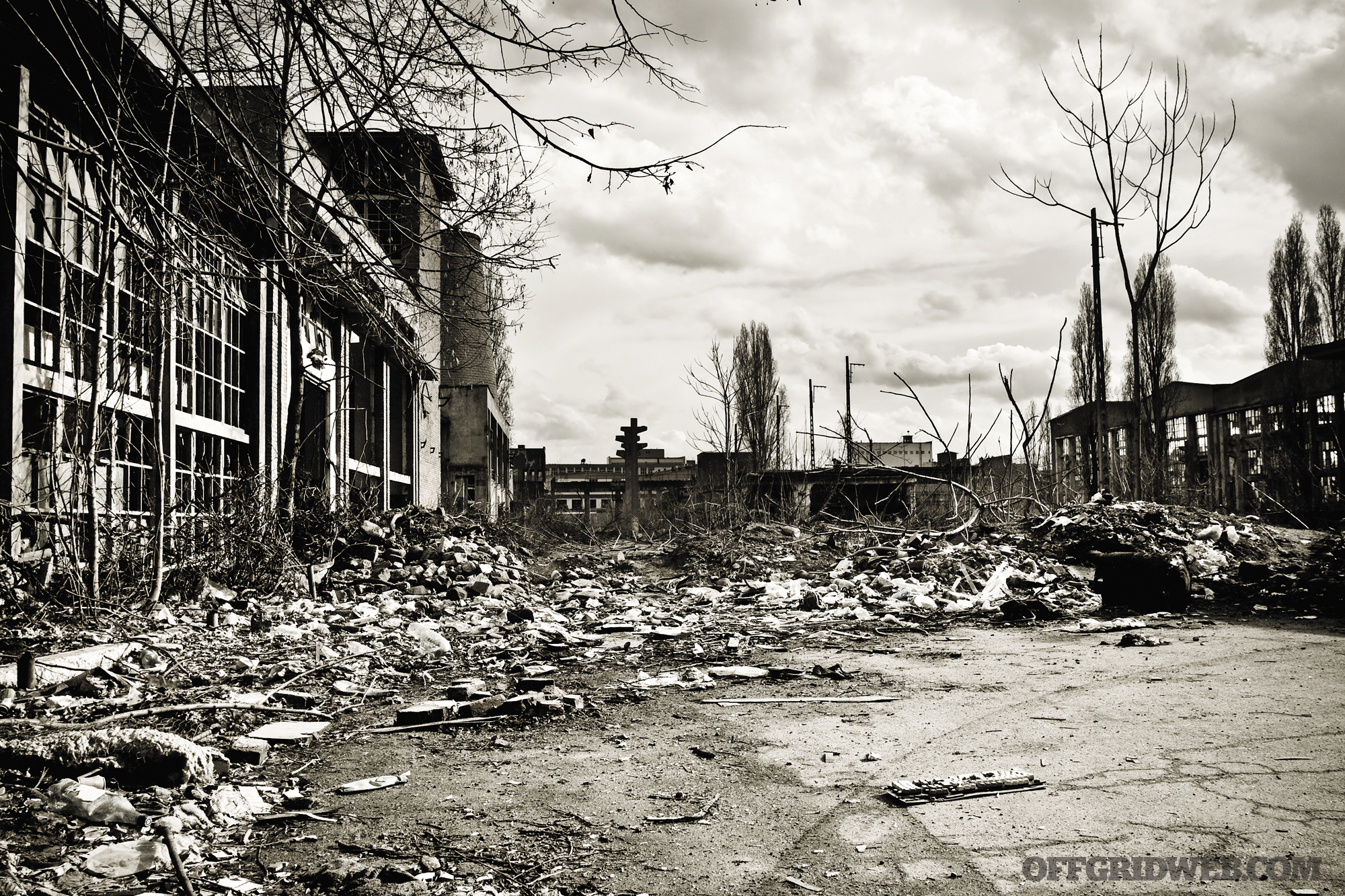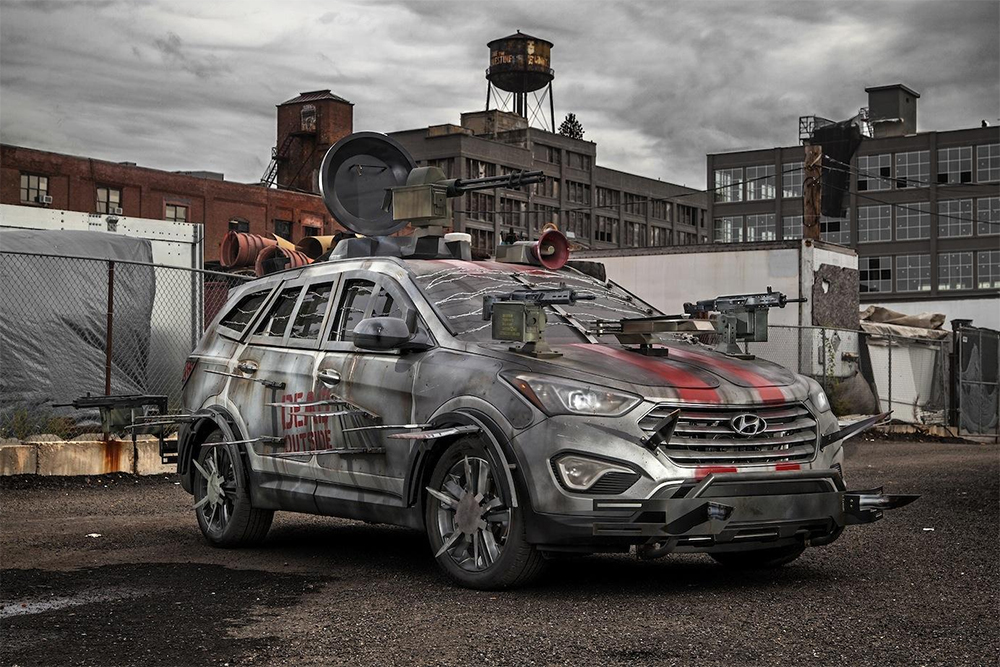RECOIL OFFGRID Preparation Selling Preparedness: How to Introduce the Prepper Lifestyle to Skeptics
This article originally appeared in Issue 9 of our magazine.
Photos by Michael Grey and Jorge Nuñez
Among the most common complaints heard from preppers, an unsupportive or uninterested spouse ranks just behind not having enough money in the disaster readiness budget and just ahead of not being able to find like-minded folks in their local area. While the world would be pretty boring if we all agreed on every single thing, it can be nearly impossible to work out a complete disaster readiness plan if you’re the only person in the household interested in doing it.

Even if you’re unmarried and living alone, undoubtedly there are people in your life you’d like to get involved with prepping, but they’ve thus far resisted your efforts.
Here’s the thing. If these are people you truly want around you, odds are they’re fairly intelligent, rational human beings, right? That being the case, and this can be difficult to admit, odds are that they aren’t the problem. Most likely, it’s you, or at least your approach when it comes to talking about preparedness. In other words, you’re not selling it very well.

Preparedness isn't necessarily about being ready for the end of the world. It's a practical mindset.
You know that guy at work who’s way more interested in football than seems sane? It seems like you can’t have any sort of conversation with him without passing plays, injury reports, or the latest trade rumors being somehow brought up. All you were trying to do is be polite in asking him how his weekend was and now you’ve been trapped for the last 30 minutes as he goes all Monday morning quarterback on you. Sound familiar?
Guess what? That might very well be exactly how you sound when the subject of prepping comes up. If your spouse’s eyes tend to glaze over rather quickly any time you talk about bug-out bags, home canning, or first-aid supplies, odds are pretty good you’ve overdone it a time or two in the past.
Being passionate about disaster readiness is one thing, obsessed is quite another. Honestly, it just isn’t healthy for any particular interest to have such an overriding effect on a human being. Remember your teen years when your primary mission in life seemed to be to attract the attention of a potential girlfriend or boyfriend? Remember all the dumb stuff you said and did back then? That, my friend, is what obsession can do.
If all you ever talk about is prepping, you begin to sound like a used car salesman who’s just trying to close a deal. Expand your horizons just a tad. Let people see you as a well-rounded person rather than a one-trick pony. Then, when the subject does come up, they’re more likely to pay attention and not feel as though they’ve heard it all before.
Another very common mistake is going from 0 to 60 in 0.2 seconds flat. Here’s how it often plays out: Coworker comes and up and says, “Hey Bob, did you see the sale this week on canned chili?” Within moments, Bob is explaining, in excruciating detail, just how many cans of chili are necessary in a comprehensive food-storage plan, one that’s designed to last a family of four at least 10 years, taking into account all of the caloric and nutritional needs of each individual in the family. Ten years, of course, being the minimum time necessary for society to rebound from the coming zombie apocalypse, a disaster the government has been grooming us to handle for years, as they’re the ones behind all of the wildly popular undead TV shows and movies.

Associating practical preparedness with zombie-apocalypse fiction can make it seem unrealistic or absurd.
Coworker probably lost interest about four seconds into that conversation, and now thinks Bob is a weirdo.
If you truly want to get more people on board with prepping, you can’t go from zero to “end of the world as we know it” at the drop of a hat. You need to ease them into it. Talk about far more common, though admittedly more boring, disasters like severe weather, power outages, and such. Leave the world-altering disaster discussions for later, once they’ve caught the prepping bug.
Money, or the lack thereof, leads to more marital strife than any other cause. The reason spending habits cause so many arguments is because the two people involved don’t agree on the relative importance of the items being purchased. If you both agreed that Jimmy Choo shoes were absolutely essential to life, there wouldn’t be an argument at all, right?
Here’s the thing. Some preppers do go overboard and put their families into serious financial trouble. Of course, so do many non-preppers. But, the fact is that prepping costs money. While there are many things you can learn to do on your own, such as gardening, home canning, and such, there are expenses involved no matter what. Your significant other might see these purchases as being wasteful because they don’t believe a disaster will ever strike.
Here’s the counter-argument: By maintaining a decent food pantry at home, you can eat tomorrow at today’s prices. Do some homework and keep track of what you spend on food supplies and let your spouse see how you’re actually saving money in the long run. Of course, you should also be using coupons and taking advantage of sales, rather than just buying for the sake of buying.
Here’s a secret that many non-preppers don’t know. Most of us who are actively preparing for potential disasters truly and deeply pray we never need to use our plans for real. You know what else we spend money on and hope we never have to use? Insurance.
Think about it. Car insurance, in particular, is something that costs us a lot of money, and yet we’ll go out of our way to never use it. If we’re in a small fender-bender, we’re far more likely to try and work things out privately than we are to call our insurance agent. If we drive for 50 years, spend a total of $30,000 or more in insurance premiums during that time, and never once file a claim, we call that a win.
People often think (incorrectly) that preppers are all about the doom and gloom, hoping and praying for a major disaster to wipe out significant portions of the population. Really, though, that’s like saying anyone who buys house insurance is praying for a fire to turn all their possessions into ash. The reality is that we buy insurance because it’s a necessary evil. If our house burns down, we need the insurance to help us rebuild. If we get sick, we need health insurance to help us afford the proper treatment. If a major disaster strikes, we want our preparations to be able to keep us safe and alive until all is right with the world again. It truly is that simple.
Unsurprisingly, insurance companies frequently attest to the value of a comprehensive disaster preparedness plan — this article from USAA is a great example to share. Here's a relevant excerpt:
“You don’t have to live in Tornado Alley or along a major geological fault line to have a plan for surviving and riding out a disaster. It’s prudent to have an emergency plan and an emergency kit in place no matter where you live, because even if you’re at low risk for a hurricane or earthquake, events like house fires and power outages can happen anywhere.”
We each have a vested interest in getting our friends and family on board with prepping. Not only will doing so reduce the overall stress in your life, every person who preps is one less person likely to be knocking on your door, looking for a handout, if disaster does hit.
Something else to keep in mind — you can lead a person to knowledge, but you can’t make them think. There will always be people who will refuse to see the light. That doesn’t make them bad people. But, if they are close to your heart, you might consider doing a little prepping on their behalf.
Jim Cobb is a recognized authority on disaster preparedness. He has studied, practiced, and taught survival strategies for about 30 years. Today, he resides in the upper Midwest with his beautiful and patient wife and their three adolescent weapons of mass destruction. His books include Prepper’s Home Defense, Countdown to Preparedness, and Prepper’s Long-Term Survival Guide. Jim’s primary home online is www.SurvivalWeekly.com. He’s also active on Facebook at www.facebook.com/jimcobbsurvival. Jim offers a consulting service as well as educational opportunities at www.DisasterPrepConsultants.com.
 STAY SAFE: Download a Free copy of the OFFGRID Outbreak Issue
STAY SAFE: Download a Free copy of the OFFGRID Outbreak Issue
No Comments